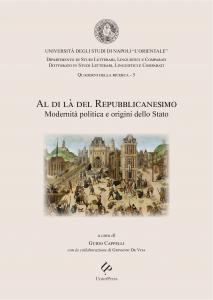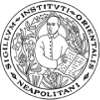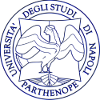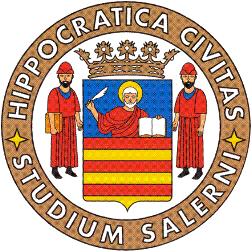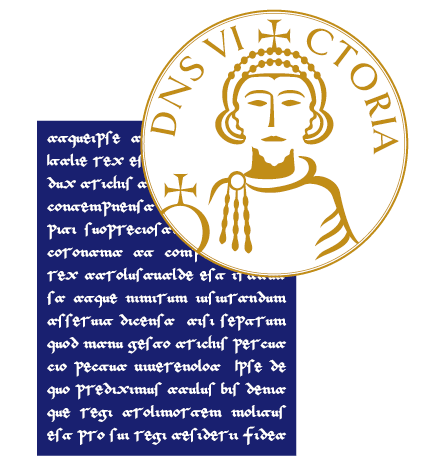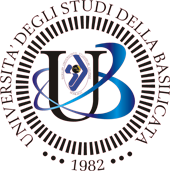Beyond Republicanism: Political modernity and the origins of the State
Keywords:
Republicanism, political thought, literature, history, philosophy, modernitySynopsis

Publisher: UniorPress
Series: Research Papers
ISSN: 2724-5519
Pages: 520
Language: Italian
NBN: http://nbn.depositolegale.it/urn:nbn:it:unina-26412
Abstract: The volume collects the interventions held at the International Conference Beyond Republicanism. Political modernity and the origins of the State. Comparing experiences and disciplines (1350-1600), that took place in Naples during April 2018. It also includes a number of external contributions deemed in line with the spirit of the conference.
The works included in the volume describe the rich variety of intersecting traditions and specialist languages that, roughly between the fourteenth and seventeenth centuries, cross their paths during the great junction of modernity: from the juridical tradition to that of the ars dictaminis, to the humanities of the Reinassance and post-Reinassance period, all nourished by classical thought, the book’s reflection invests the conceptual and discursive structures which - amid conflicts, contradictions and adaptations - combine to form the modern idea of the State. The "case study" of Aragonese Naples (1442-1503) demonstrates how this historically determined reality has represented an avant-garde laboratory of the European ethical and socio-political modernity. The last section addresses, from a historical-critical and philosophical-political point of view, the challenges that the contemporary era poses to political modernity and doctrine, and perhaps even more so to the nature of the State itself. In the background, the volume suggests to explore a renewed approach to the conceptualization of politics and public behavior, starting with a reflection on European thought between the late Middle Ages and the early modern age.
Summary:
Guido Cappelli - Ottorino Cappelli, Premessa
QUADRI TEORICI
Diego Quaglioni, Da un immaginario all’altro. Teoriche del potere imperiale e costruzione dell’ideario statuale nella prima Modernità
Isabella Lazzarini, Y a-t-il un état de la Renaissance? Mito e realtà del Rinascimento “politico” (Italia, 1350-1520 ca.)
MOMENTI, 1. Repubblica, monarchia, tirannide
Enrico Fenzi, Una traccia attraverso la poesia politica da Guittone a Petrarca
E. Igor Mineo, Le parti e il tutto. La memoria dei Ciompi e la semantica del popolo
Cary J. Nederman, Post-republicanism and quasi-cosmopolitanism of Marsiglio of Padua’s Defensor pacis
James HanKins, Republicanism, Virtue and Tyranny
Fabio Frosini, «Uno esemplo domestico e moderno»: Machiavelli, Firenze e l’idea di contemporaneità
Marco Geuna, Machiavelli, la «variazione delle sette» e la critica al Cristianesimo
Anna Di Bello, La spada e il pastorale. Politica e religione nel Viceregno spagnolo di Napoli
Silvana D’Alessio, Sulle repubbliche: mito politico e realtà storica
MOMENTI, 2. Utopia, ragion di Stato, resistenza
Gennaro Barbuto, Profezia e “Città del Sole”
Pietro Sebastianelli - Alessandro Arienzo, Lo “stato” della ragion di stato e la modernità politica
Ermanno Vitale, Sovranità e diritto di resistenza. Dalle Vindiciae al Secondo trattato sul governo civile
UN CASO DI STUDIO: NAPOLI ARAGONESE
Fulvio Delle Donne, Le virtù e l’impero: dalla letteratura alla costruzione del consenso. Il pensiero politico di Alfonso il Magnanimo attraverso le parole che il Panormita gli attribuisce
Guido Cappelli, Cenni sullo Stato aragonese nella teoria politica
Guido D’Agostino, Contesto della “corona d’Aragona”. Il caso del primo Parlamento Generale del Regno aragonese di Napoli (1442-1443)
PROSPETTIVE CONTEMPORANEE
Antonio GÓmez Ramos, La “libertad de ser libres” o la “monarquía no tiránica”. Sobre el Estado y la libertad, según Arendt y Hegel
Ottorino Cappelli, Lo Stato, la Storia, l’Antistato. Proposte per un percorso di ricerca interdisciplinare
Aurelio Musi, Stato/Antistato: una dicotomia problematica
Guido Cappelli, Postfazione. Lo Stato, da protomoderno a postmoderno
AUTORI / ABSTRACTS / RIASSUNTI
INDICE DEI NOMI
Downloads
